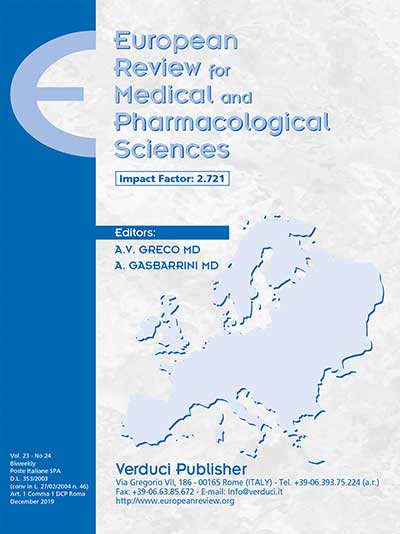Authors:
L. Pkhaladze, M. Russo, V. Unfer, M. Nordio, S. Basciani, A. Khomasuridze
OBJECTIVE: Polycystic ovary syndrome (PCOS) is an endocrinological and metabolic disorder widely diffused and diagnosed in women of reproductive age. The pathology exhibits alteration of the reproductive functions, including conditions as hyperandrogenism, menstrual cycle irregularity, type 2 diabetes. These conditions are visible in the patients through phenotypical manifestations as hirsutism, acne, and obesity. Even if the syndrome is characterized by common features among both adult and adolescent women, the diagnostic criteria are different for the two age categories and to date still controversial. We investigated different treatments in PCOS adolescents with non-severe metabolic conditions, to evaluate which could be the appropriate therapeutical approach for these patients.
PATIENTS AND METHODS: We enrolled lean teenagers with PCOS, and we divided the patients in two age ranges: 13-16 years old and 17-19 years old. They were treated for 3 months either with oral contraceptive pills (OCP) drospirenone/ethinylestradiol (group A), myo-Inositol (myo-Ins) (group B), or OCP plus myo-Ins (group C). Data were analyzed with a descriptive statistics summarizing quantitative variables including median, 25th and 75th percentiles.
RESULTS: We pointed out that the group of 13-16 years old lean teenagers treated with myo-Ins exhibit a significant decrease of weight and body mass index (BMI), and an effective improvement the metabolic and hormonal parameters achieved with a non-pharmacological treatment. In the older teenagers aged 17-19 years, data highlights that myo-Ins treatment in combination with OCP prevents the increases of weight and BMI, improves the metabolic profile of the patients, and strongly ameliorates the hormonal parameters analyzed.
CONCLUSIONS: The results indicate a different scenario in the two age ranges considered and interestingly suggest an important role of myo-Ins in the PCOS context. A therapy based on this natural compound alone or in combination with OCP seems effective to improve both metabolic and hormonal parameters of PCOS adolescents and thus could represent a novel and valid option to consider for the treatment of this syndrome.

